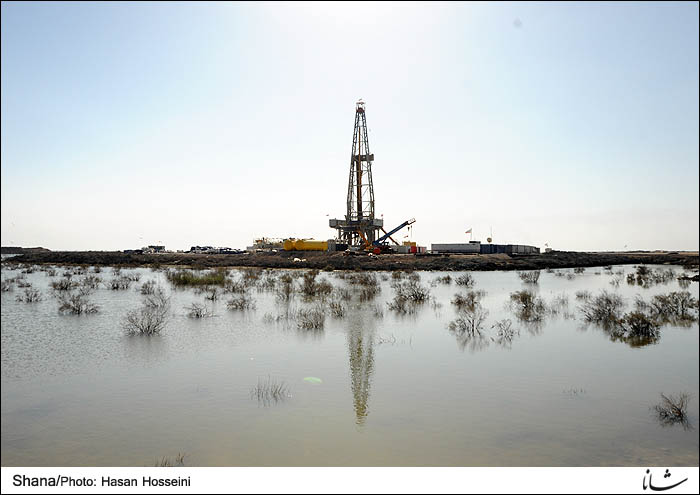A senior official with NISCO, Hamid Deris, said the reservoirs were introduced in a specialized panel during the two-day Iran Petroleum Contract (IPC) Conference in Tehran.
Bangestan oil reservoir in the south western city of Ahwaz, Bangestan Mansouri and Bangestan Ab Teymour are three oil reservoirs introduced to the potential investors during the conference, said Deris.
Furthermore, gas reservoirs including Ahwaz Khami, Sourmeh, Bibi Hakimeh Khami, Korank Khami and Asmari Jurasic Mount were put on offer during the conference.
The gas reservoirs contain nearly 13 trillion cubic feet natural gas in-place and can be developed for the daily recovery of 710 mcf as well as 74,000 bpd of gas condensate, added Deris.
Iran holds the world’s largest reserves of gas and the fifth for oil. Representatives from some European oil companies, including the U.K.’s BP PLC and France’s Total SA, attended the Tehran conference which will be followed up in another conference in London in February. In his opening speech in the conference, Iranian Minister of Petroleum Bijan Zangeneh said U.S. companies were welcome to invest in Iran.
Iran, which sits on the world’s largest gas reserves, intends to enhance gas production by increasing foreign and domestic investment, especially in its South Pars gas field.
Iran is streamlining its oil production and refining facilities and installations for reentry in global business communities following the US-led sanctions removal on its economy.
Iran currently exports a little more than 10 bcm of natural gas to Turkey, Armenia and Azerbaijan but several projects are in different stages of development which would allow ramped-up sales when they become operational.
Iran's condensate exports doubled to about 200,000 bpd in 2014, accounting for total Iranian oil shipments of about 1.3 million bpd.
The London-based British Petroleum (BP) released a report last year describing Iran as the country possessing the world’s biggest natural gas reserves by the end of 2013.
According to BP’s report, total volume of Iran's natural gas reserves has increased by 200 billion cubic meters to hit 33.8 trillion cubic meters (tom), exceeding by 2.5 tom the natural gas reserves of Russia, which is currently the world’s top exporter of natural gas.
Iran is pitching 70 oil and natural gas projects valued at $30 billion to foreign investors at a two-day conference in Tehran as the Persian Gulf country prepares for the end of sanctions that have stifled its energy production.
The country is offering 52 oil and gas development projects in addition to 18 exploration blocks, according to a brochure from the Iranian petroleum ministry. That includes projects at 29 new and currently producing oilfields and 23 gas developments. Onshore fields make up 34 of the projects.
Iran’s oil exports fell to an average 1.4 million barrels a day last year from 2.6 million in 2011 due to the sanctions on the country, U.S. Energy Information Administration data show. U.S. sanctions on Iran limit it to selling about 1 million barrels of crude a day to China, India, Japan, South Korea, Turkey and Taiwan, with additional purchases of condensate, a light oil liquid found in gas deposits, also allowed.
IPC is replacing buyback deals. Under a buyback deal, the host government agrees to pay the contractor an agreed price for all volumes of hydrocarbons the contractor produces.
But under the IPC, National Iranian Oil Company (NIOC) will set up joint ventures for crude oil and gas production with international companies which will be paid with a share of the output.
In the wake of nuclear deal reached last July, Iran has been receiving high-ranking officials and corporate executives of major companies including from Germany, Spain, Austria, Italy, and France to discuss new cooperation ventures.
Zangeneh has said that Iran welcomes foreign investment in its energy industry, but stresses technology transfer by foreign partners in the new contracts.


Your Comment